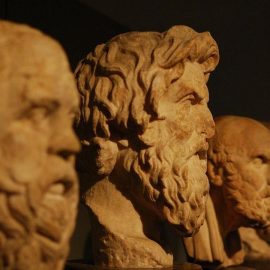
Have you ever struggled to forgive someone who deeply hurt you? What would it take for you to finally let go of that pain and anger?
In his thought-provoking novel, William P. Young explores these questions through the transformative journey of his protagonist, Mack. The Shack’s forgiveness theme is woven throughout the narrative, as Mack confronts his past and learns the power of compassion.
Join us as we delve into the profound insights Young shares about the nature of forgiveness and its ability to heal even the deepest wounds.
Forgiveness in The Shack
In The Shack, forgiveness is a prominent theme. Despite the atrocious nature of the act, Mack was driven by a sense of spiritual duty to forgive the person responsible for his daughter’s heartbreaking murder. He felt an irresistible urge to embark on the difficult path of forgiveness after this tragic event.
Forgiveness isn’t portrayed as erasing a memory but as a deliberate decision to stop letting a past wrong dominate the person who endured it. Papa, symbolizing the divine, communicates that every act of forgiveness lays down a groundwork that not only fosters love but also heals connections, freeing both the aggrieved and the transgressor from the bonds of anguish and bitterness. As illustrated by the principle of a triune unity, forgiveness frees those who forgive from the grip of bitterness and pain with an act of compassion.
The concept of forgiveness is intricately woven into dialogues characterized by the tripartite aspect of the divine. Overcoming the quagmire of negative emotions that hinder human progress hinges on this crucial element. It’s depicted as a potent force that liberates a person from their own distress and guides the individual who made a mistake toward a journey of redemption and amends.
(Shortform note: Forgiveness within the Christian belief in the Triune God emphasizes pardoning others as a reflection of divine mercy and love. The concept underscores releasing resentment and bitterness toward those who have wronged us, mirroring the forgiveness offered by God. It signifies a transformative act that not only frees the forgiver from negative emotions but also promotes healing and reconciliation in relationships. Forgiveness, rooted in the Triune God’s example, is a powerful force that fosters compassion, understanding, and restoration in both personal and communal contexts.)
Mack’s Forgiveness Expands
Mack’s path to recovery is deeply rooted in the challenging act of forgiveness, which necessitates confronting his distressing history. He summoned the inner fortitude to pardon his father for the suffering he experienced in his youth. The narrative delves into the turbulent history Mack faced with an alcoholic and abusive father, heightening the emotional turmoil. While engaging with the heavenly trio, Mack confronts and forgives his father.
The summaries hint that Mack has unresolved emotions regarding his father, who is notorious for his detrimental behavior, without going into the details of their interactions. In a crucial moment, Mack is overwhelmed by a storm of conflicting feelings. Ultimately, he finds liberation and strength by pardoning his upbringing’s architect. Mack experienced a significant change in how he connected with his father, marked by a poignant and revelatory instance that symbolized the mending of old injuries. Through this act, he frees his life from the long-standing resentment and bitterness that have tainted his existence.
The pivotal moment involving his father emphasizes the restorative strength found in forgiving others. The metaphor of glistening droplets and emerging hues symbolizes a crucial juncture where the sorrow gives way to a forgiving spirit, allowing love to prevail and mend the fractures in their relationship. Mack’s pivotal release from the weight of his resentment signifies an essential transformation: through the act of forgiving his father, he succeeds in forming an authentic connection with the divine Father. This shift toward a more uplifting viewpoint underscores the healing power of forgiveness, which absolves those who have wronged others and also sets free the person making the decision to pardon.
(Shortform note: Mack’s relationship with his abusive and alcoholic father is a significant aspect of his personal history. The narrative delves into the emotional turmoil Mack faced due to his father’s destructive behavior. Mack’s journey toward forgiveness and reconciliation with his father plays a pivotal role in his overall character development and healing process. Through this narrative arc, Mack confronts his past traumas and finds a path toward emotional liberation and inner peace.)






